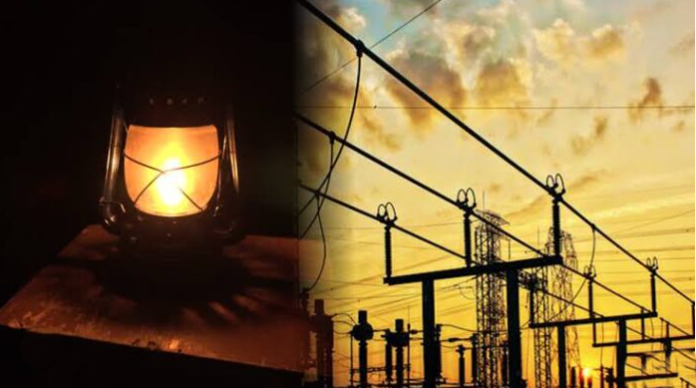By Joke Kujenya
ANOTHER SUDDEN collapse of Nigeria’s national electricity grid has thrown millions of Nigerians into darkness, again.
The grid crumbled about 6.48p.m. on Monday, October 14, 2024, resulting in a nationwide blackout across the country.
The widespread outage highlights persistent issues within the country’s power supply system and raises concerns about the reliability of electricity distribution as some Nigerians have noted.
Swiftly, the Abuja Electricity Distribution Company (AEDC) was among the first to report the failure, stating the blackout was due to a system failure at the national grid.
“The power outage being experienced is due to a system failure from the national grid affecting the power supply to our franchise areas,” the company communicated via its official X account.
Promptly, the AEDC assured customers they are actively working with relevant stakeholders to restore power as quickly as possible, emphasizing their commitment to resolving the issue.
Similarly, the Enugu Electricity Distribution Company (EEDC) confirmed that the collapse had severely impacted its service areas.
In a statement released shortly after the incident, Emeka Ezeh, the head of corporate communications at EEDC, detailed the implications of the grid failure.
“This has resulted in the loss of supply currently being experienced across the EEDC network,” Ezeh said.
The outage also affected customers in Abia, Anambra, Ebonyi, Enugu, and Imo states, leaving many without electricity.
“Consequently, due to this development, all our interface TCN stations are out of supply, and we are unable to provide services to our customers in these regions,” he added.
He adds that the EEDC is currently awaiting further information regarding the collapse and any updates on restoration efforts from the National Control Centre (NCC) based in Osogbo.
Lagos EKEDC Also Reports
Similarly, the Eko Electricity Distribution Company (EKEDC) also reported a system collapse at 6:48 p.m.
The company reached out to customers through social media, acknowledging the power supply loss across their network.
“We are currently working with our partners as we hope for speedy restoration of the grid,” EKEDC stated, urging customers to remain patient while they address the situation.
Sixth in 2024
This collapse marks the sixth incident of its kind in 2024, raising alarm about the stability of Nigeria’s power infrastructure.
Previous failures this year occurred on February 4, March 28, April 15, July 6, and August 5, showcasing a worrying trend of systemic weaknesses in electricity generation and distribution.
Historically, Nigeria’s electricity sector has struggled with frequent disruptions, often attributed to a combination of inadequate infrastructure, poor maintenance practices, and coordination issues among various stakeholders.
TCN Lists Grid Collapses
In an earlier statement, the Transmission Company of Nigeria (TCN) had noted that while system collapses had decreased by 76.47 percent in the last five years, the persistence of grid failures indicates ongoing vulnerabilities.
On May 1, TCN spokesperson Ndidi Mbah reported that 20 system collapses occurred between 2020 and early May 2024, compared to 85 from 2015 to 2019.
The company said it has since introduced a digital system called the Generation Dip/Loss Detection System (GLDS) designed to swiftly detect and respond to sudden drops in power generation.
However, despite these advancements, the latest incident shows that much work remains to be done.
In April, Nafisat Ali, TCN’s Executive Director of the Independent System Operator, elaborated on the factors contributing to frequent grid collapses.
“The causes of grid collapse in Nigeria spread across all participants, from generation companies to transmission and distribution,” she explained during a Senate Committee hearing on Power.
The issues cited include inadequate gas supply for generation, poor coordination of power plants and gas pipelines, and low generation availability.
Nigerians React
Some netizens note that as the nation keeps grappling with the fallout from Monday’s blackout, it emphasizes the need for comprehensive reforms in the electricity sector which has never been more critical.
All stakeholders should actually intensify efforts to enhance infrastructure, improve service reliability, and ultimately provide Nigerians with a stable and efficient power supply.
In particular, the consequences of this blackout are likely to resonate for days to come, as businesses and households face the challenge of adapting to an uncertain energy landscape, they stressed.
At JKNewsMedia, our dedication to delivering reliable news and insightful information to our cherished readers remains unwavering. Every day, we strive to provide you with top-notch content that informs and enlightens. By donating to JKNewsMedia, you directly contribute to our mission of delivering quality journalism that empowers and informs. Your support fuels our commitment to bringing you the latest updates and in-depth analysis. Let's continue to uphold the highest standards of journalism and serve our community with integrity and dedication. Thank you for being a part of the JKNewsMedia family and for your ongoing support.






Thanks for the information. I was wondering why the power failure, because we are on Band A.